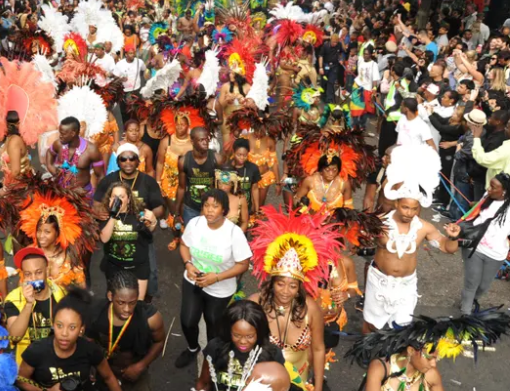Contemporary Britain's idea of the crowd was formed by two explosions in unruly mass culture at the end of the last century.
當(dāng)代英國人對人群的概念是由上世紀(jì)末難以駕馭的大眾文化的兩次爆炸形成的。
First, by 70s and 80s football fandom and its manifold sins, and the avoidable tragedy of Hillsborough –
首先是,70年代和80年代的足球迷和它的罪惡,以及本可避免的希爾斯堡慘案,
a tragedy created by the authorities' views of the crowd as animalistic thugs,
這是一場因當(dāng)局將群眾視作獸性的暴徒而導(dǎo)致的悲劇。
a fear and loathing that permeated the media, police, political class and football authorities.
恐懼和厭惡充斥著媒體、警察、政治階層和足球當(dāng)局。
And second, by the acid house explosion and rave scene of the late 80s and early 90s,
然后是,80年代末90年代初的酸屋爆炸和狂歡場景,
a subcultural surge of illegal or at least illicit "free parties" in fields and warehouses across the country.
非法或至少是不正當(dāng)?shù)摹白杂膳蓪Α痹谌珖鞯氐霓r(nóng)田和倉庫里涌起一股亞文化浪潮。
Both cultures flourished in spite of widespread media demonisation, both fought the law – and in both cases, the law won.
盡管媒體普遍妖魔化,但兩種文化都繁榮起來,兩者都與法律抗?fàn)帯以谶@兩種情況下,法律都贏了。
Things have never been the same since for people who wish to assemble on their own terms.
從那時起,對于那些希望按照自己的意愿聚集在一起的人來說,事情就不一樣了。
The policing, containment and enclosure of "free" raves is particularly instructive,
對“自由”狂歡的管制、遏制和圍堵尤其有指導(dǎo)意義,
suggesting that the authorities fear a happy crowd as much as a pitchfork-carrying one.
這表明當(dāng)局對快樂人群的恐懼不亞于對拿草耙的人群的恐懼。

For the novelist Hari Kunzru, reflecting on his 90s youth a few years ago, approaching the site of a rave, feeling "the bass pulsing up ahead,
幾年前,小說家哈里·昆茲魯回憶起自己在90年代時的青春歲月,當(dāng)時他正在參加一場狂歡舞會,他感受到“前方跳動的低音,
the excitement was almost unbearable. A mass of dancers lifting up like a single body … [an] ecstatic fantasy of community,
那種激動幾乎都難以承受。一群跳舞的人像一個人一樣跳起來...一場狂熱幻想的共同體,
a zone where we were networked with each other, rather than with the office switchboard."
在那里,我們彼此互聯(lián),而不是在辦公室與總機聯(lián)網(wǎng)。”
The culmination of the rave era, and the beginning of its end, was the epochal 1992 Castlemorton Common festival,
狂歡時代的高潮和結(jié)束的開始是具有劃時代意義的1992年卡斯勒莫爾頓公共音樂節(jié),
a week-long, outdoor free party in Worcestershire, with numbers in excess of 20,000.
伍斯特郡為期一周的戶外自由派對,人數(shù)超過2萬人。
Writing about it in the Evening Standard, Anthony Burgess summed up the establishment mood,
安東尼·伯吉斯在《倫敦晚報》上撰文總結(jié)了當(dāng)時的風(fēng)氣,
railing against "the megacrowd, reducing the individual intelligence to that of an amoeba".
怒斥“巨量人群聚集,把個體的智力降低到變形蟲的智力”。
One man's escapist fantasy of community is another's vision of civilisational collapse,
一個人對社會逃避現(xiàn)實的幻想,就是另一個人對文明崩潰的憧憬,
and the Thatcher-into-Major-era junta of the tabloid press, police,
撒切爾執(zhí)政時期的小報、警察、
landowners and the Conservative party made it their business to disperse rave's congregation of squatters, dropouts, drug-takers, hippies, hunt saboteurs, anti-road protesters and travellers.
土地所有者和保守黨把驅(qū)散擅自占地者、輟學(xué)生、吸毒者、嬉皮士、狩獵破壞者、反道路抗議者和旅行者的狂歡聚會作為他們的工作。












